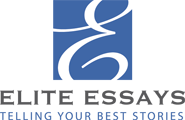MBA Interviews 2010 #4 - Walk Me Through Your Resume
I’ve been doing a lot of “walk me through your resume” interview training with my clients, and the more I do them, the more I’m convinced that they are one of the best interview practices because they:
- force you to be proactive while also giving you lots of control
- force you to be concise while also providing value-added information
- allow you to expand your interview answer pool beyond what you’ve written in your essays
- allow you to explain connections between different parts of your life, thereby showing self-awareness and giving you the chance to tell the bigger picture of who you are
However, this type of interview can be more difficult than a straightforward Q&A type exactly because of the freedom it provides. Therefore, I tell my clients to keep the following points in mind:
- Obviously, make sure you have extra copies of your resume for both you and the interviewer to review. You never know what type of interview you'll have.
- Decide the starting point (e.g., current job, first job, education, even additional information if appropriate) and direction (chronological or reverse chronological) and stick to it. I think most people find chronological easier, starting with either their college education or their first job. There are always exceptions though.
- Don’t skip around. Guide your interviewer. Tell them where you are in the resume so they don’t get lost.
- Don’t just read each bullet point word for word. Your interviewer can do that for herself. Provide value-added context to each individual accomplishment (e.g., why it was important, or what was especially difficult), explain how accomplishments relate to each other, and what the accomplishments say about your strengths, weaknesses, thoughts, values, etc. You should also explain how different sections of your resume (i.e., educational, professional, personal) relate to each other. To do this effectively, it helps to have a strategy before the interview begins. If certain accomplishments relate directly to your goals, take the opportunity to introduce your goals. If it seems appropriate, you can go even further to include “Why MBA?”, “Why School X?”, etc.
- Be concise. Aim for 1 to 2 minutes for each bullet point. If you need help developing your bullet points, see here.
- If you have lots of similar accomplishments, just focus on the highlights.
Even if you are not asked to “walk me through your resume”, I encourage all my clients to know and be ready to speak about any item on their resumes, since it is often the only information an interviewer has about you. In addition, a resume represents a manageable amount of information to master, as opposed to trying to memorize answers to massive lists of questions found online, an approach that, in my experience, merely increases anxiety and decreases performance. Of course question lists can be helpful, but I recommend using them to test your ability to adapt and express the information you should already know well from your essays and resume.
If you are interested in my interview training service, please see here for more details before contacting me.
